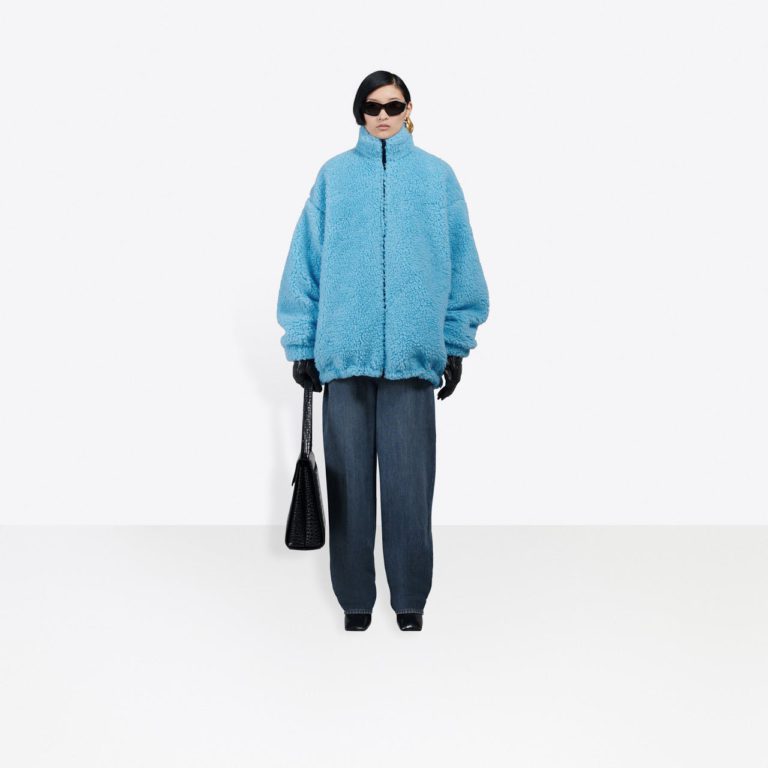Balenciaga
Our Rating: 3 Stars - It's a start
Price: $ $ $ $
Country of origin: France
Official brand website: Visit

Balenciaga Sustainability Assessment: A Comprehensive Review
In an era where sustainability is a defining criterion for conscious consumer choices, Balenciaga, a prominent fashion brand under the ownership of Kering, thoroughly examines its commitment to environmental responsibility, workers’ rights, and animal welfare.
This comprehensive review delves into the intricate facets of Balenciaga’s sustainability practices, shedding light on commendable initiatives, areas of improvement, and the brand’s overall impact on the ethical landscape of the fashion industry.
From environmental policies emphasizing lower-impact materials to workers’ rights assessments and animal welfare considerations, this assessment aims to provide a nuanced understanding of Balenciaga’s role in shaping a more sustainable and ethical future in fashion.
Key Takeaways
- Balenciaga demonstrates a commitment to sustainability through lower-impact materials and science-based targets for greenhouse gas reduction.
- The brand actively protects biodiversity in its supply chain, recognizing the importance of preserving natural habitats.
- Workers’ rights initiatives are marked by a majority of production in the low-risk European Union and a policy supporting diversity and inclusion.
- Transparency in operations has improved, but there’s room for Balenciaga to disclose more about its supply chain practices.
- While the brand has made strides in workers’ safety during the pandemic, addressing textile waste and improving animal welfare practices remain areas of opportunity.
About Balenciaga
Founded in 1917 by Cristóbal Balenciaga in Spain and later established in Paris in 1937, the House of Balenciaga became renowned for its couture excellence under the uncompromising standards of its founder.
Often hailed as “the master of us all” by Christian Dior and “The Couturier of the Couturiers” by Gabrielle Chanel, Balenciaga’s legacy is marked by ultra-modern shapes that have become brand trademarks.
While the house is rooted in conceptual prêt-à-porter collections, it has achieved global success in leather goods, footwear, and accessories, particularly with its iconic handbag collections.
Balenciaga’s expansion into ready-to-wear collections for men, initiated with great success, further solidified its influence. Since October 2015, the artistic direction of both men’s and women’s collections has been under the creative guidance of Demna Gvasalia.
As part of the Kering group since 2001, Balenciaga remains one of the most influential names in the fashion industry.
Environmental Policies:
Balenciaga, under the ownership of Kering, earns a “Good” rating for its environmental policies and practices, showcasing a dedication to sustainability. Notably, the brand prioritizes using lower-impact materials, including recycled ones, demonstrating a conscious effort to reduce the environmental impact of its production processes.
Furthermore, Balenciaga has established science-based targets to curtail greenhouse gas emissions across its entire supply chain, displaying a commitment to combating climate change.
A commendable aspect of Balenciaga’s environmental approach is its focus on preserving biodiversity.
Implementing measures throughout the supply chain ensures that the brand’s operations do not negatively impact biodiversity, highlighting a holistic understanding of ecosystem interconnectedness and the significance of conserving natural habitats.
While Balenciaga resales second-hand products, there is an opportunity for improvement in addressing textile waste within its supply chain.
Enhancing this area would further solidify the brand’s sustainability endeavors and minimize its contribution to the fashion industry’s waste problem.
Workers’ Rights:
Balenciaga’s commitment to workers’ rights is scrutinized through its “People” rating, revealing an “It’s a Start” evaluation, indicating room for improvement. A positive aspect is that a significant portion of Balenciaga’s final production stage occurs in the European Union, a region considered low-to-medium risk for labor abuse, contributing to the protection of workers.
In the 2022 Fashion Transparency Index, Balenciaga scored 41-50%, denoting a moderate level of transparency. While a positive step, there is potential for improvement in divulging additional information about supply chain practices.
Although Balenciaga has implemented a comprehensive policy promoting diversity and inclusion within its direct operations, it does not extend to its supply chain. Encouraging diversity throughout the supply chain would contribute to a more inclusive fashion industry.
While Balenciaga claims to have a program to improve wages, evidence must be provided regarding workers in most of its supply chain being paid living wages. Ensuring fair wages at all supply chain stages is essential for achieving social sustainability.
During the COVID-19 pandemic, Balenciaga disclosed adequate policies to protect workers in its supply chain, underscoring its commitment to well-being and safety.
Animal Welfare:
Balenciaga has been rated as “Not Good Enough,” indicating substantial room for improvement in animal welfare. Despite having a formal policy aligned with the Five Domains of Animal Welfare, the brand still employs materials such as leather, shearling, exotic animal hair, and silk, often associated with ethical concerns.
There is an opportunity for Balenciaga to explore alternative materials and production methods that do not harm animals. Balenciaga sources some of its wool from suppliers certified by the Responsible Wool Standard, ensuring adherence to high animal welfare standards.
However, transparency is lacking regarding down, fur, angora, or exotic animal skin, hindering consumers from making informed choices about the brand’s animal-derived products.
While Balenciaga traces most animal-derived materials back to the first production stage, there is room for improvement in tracing these materials throughout the entire supply chain.
Overall Rating:
Balenciaga receives an “It’s a Start” overall rating, acknowledging commendable efforts in certain areas but highlighting the need for improvement. Key focus areas include addressing textile waste, enhancing workers’ rights throughout the supply chain, and refining animal welfare practices.
Through these steps, Balenciaga can further solidify its commitment to sustainability and contribute to a more responsible and ethical fashion industry.
FAQs:
Balenciaga has embraced sustainability through lower-impact materials, recycling, and science-based targets to reduce greenhouse gas emissions across its supply chain.
The brand implements measures in its supply chain to preserve biodiversity, showcasing a holistic approach to environmental sustainability.
Balenciaga has been rated “It’s a Start,” indicating room for improvement. Positive aspects include production in the EU and a comprehensive policy supporting diversity and inclusion.
While Balenciaga received a moderate score on the Fashion Transparency Index, there’s room for improvement in disclosing more information about its supply chain practices.
Balenciaga currently offers the resale of second-hand products but can further enhance its efforts to minimize textile waste.
Balenciaga has a formal policy aligned with the Five Domains of Animal Welfare but still uses materials associated with ethical concerns. The brand sources some wool responsibly.
While the brand traces most animal-derived materials to the first production stage, transparency regarding down, fur, angora, and exotic animal skis could improve.
Balenciaga has an overall rating of “It’s a Start.” While commendable efforts are noted, improvements in addressing textile waste, workers’ rights, and animal welfare practices are recommended for a more sustainable fashion industry contribution.







